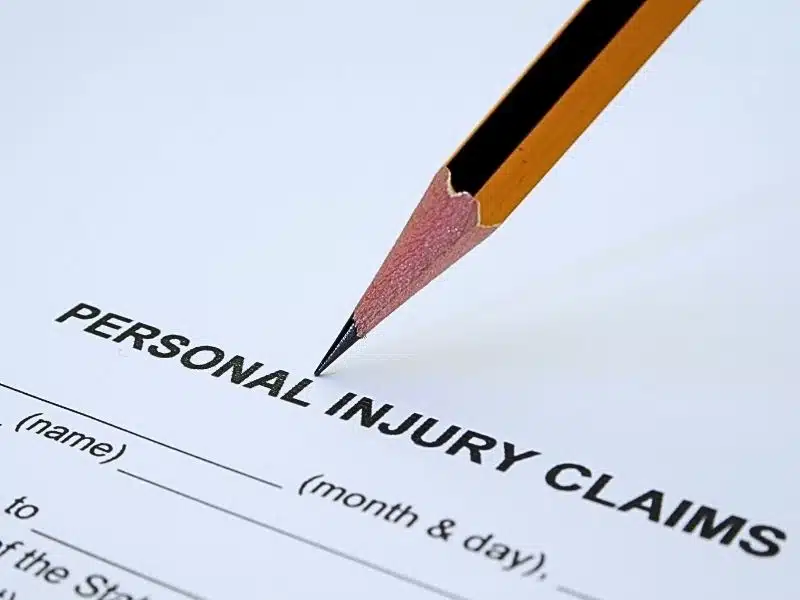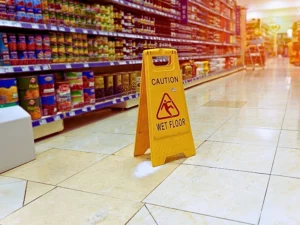Following an accident in Nevada, injury victims may be able to file different types of personal injury claims against liable parties for damages, including cases involving car accidents, slip and falls, product liability, and animal bites. In these cases, negligent people or entities cause harm to others, making them responsible for financial losses and other types of damages that victims suffer, requiring them to pay compensation to cover medical costs and more.
Depending on the circumstances, you may be able to file a valid personal injury claim in Nevada if your case falls under this category.
Types of Personal Injury Cases in Nevada
The following are the common types of injury claims that people build in Nevada after sustaining injuries. These cases may result from liable parties’ negligence, gross negligence, or even malicious intent, leading to serious injuries and extensive damages.
Motor Vehicle Accidents
These accidents account for most personal injury cases in the U.S. Around five to six million car accidents occur every year in the country, making this type of accident extremely commonplace. Many of these accidents lead to personal injury claims and lawsuits, depending on the situation and who is at fault.
There are several types of motor vehicle accidents that can occur, including:
- Rear-end crashes
- Jackknife crashes
- T-bone crashes
- Sideswipes
- Head-on crashes
- Single- and multiple-vehicle accidents
These collisions can also involve different types of vehicles, like cars, trucks, and trains, along with pedestrians and cyclists. Some accidents may not be the fault of drivers, with many crashes resulting from poor road conditions, low-quality vehicle maintenance, and other issues that are the fault of municipalities, mechanics, trucking companies, and other parties.
Slip and Fall Accidents
Many personal injury claims also involve slip and fall or trip and fall accidents. For example, someone could slip and fall on a slippery surface without proper signage or warnings present, which could make the property owner liable for injuries sustained in a slip and fall. Failure to maintain property could also lead to poor flooring conditions and other hazards that put people at risk of slipping or tripping.
Generally, property managers and landowners are liable in slip or trip and fall cases, as they must work to maintain their property and keep it safe for pedestrian traffic. If a property owner is aware of a potential hazard and fails to properly address it, he or she could be liable for damages resulting from these types of accidents.
Product Liability
Another type of personal injury case that people may file in Nevada has to do with product liability. These cases entail holding manufacturers, distributors, or retailers responsible for damages resulting from faulty products.
These cases could result when a product has a design or manufacturing defect that causes harm even when people use the product as intended. Product liability cases could also involve a failure to warn of potential dangers and provide instructions around proper use.
Dog Bites and Animal Attacks
Dog bites often occur in the U.S. and can lead to serious injuries and fatalities. If dog bites cause extensive injuries that require treatment, victims may be able to file personal injury claims against the animal’s owners to recover compensation.
Nevada is a state that follows the “one bite rule,” which generally allows a dog owner’s pet to bite once without the owner facing repercussions. However, any subsequent bites could make the owner liable, potentially forcing him or her to compensate victims once the pet is considered dangerous.
Compensation in Personal Injury Cases
You may want to know what kinds of compensation you’re able to recover and the average payout for a personal injury claim. However, there isn’t a specific average, with each case involving different damages that factor into the total settlement amount that claimants and plaintiffs recover.
There are three different types of damages to consider when calculating the total compensation in a personal injury case, including:
Economic Damages
These are the primary damages associated with personal injury claims. They account for the financial losses that victims suffer because of their injuries, with more extensive injuries coming with higher costs that can increase the total amount of compensation.
There are many potential costs that can result from personal injury, such as:
- Medical expenses, including everything from ambulance rides and immediate care to hospitalization, ongoing care, and surgery
- Physical therapy and rehabilitation
- Lost income and lost earning capacity
- Adjustments made to the home or a vehicle to accommodate disabilities
- The costs of housekeeping, personal care, and other services
- Property damage
These are some of the potential costs that can result from a personal injury, not including burial expenses and other costs associated with wrongful death cases.
Non-economic Damages
In addition to economic damages, personal injury victims often suffer certain non-economic damages that account for personal losses.
For example, a victim may sustain physical pain and suffering, psychological distress, trauma, anxiety, depression, disfigurement, and loss of companionship or consortium, along with other personal damages.
While these can be harder to calculate than economic damages, courts and attorneys have systems for determining their costs and how they factor into settlements.
Punitive Damages
In rare instances, victims may also recover punitive damages in personal injury cases. These damages only result when a defendant is liable for gross negligence or malicious conduct, and only a judge or jury can award these in a trial setting.
Unlike the aforementioned economic and non-economic damages, punitive damages have the sole intention of punishing defendants for egregious behavior. The end goal is to prevent future incidents of a similar nature from occurring.
Wrongful Death Damages
In some cases, injury victims may succumb to their injuries, in which case the victim’s family may be able to recover damages in wrongful death cases.
The damages in these cases can include all of the above economic and non-economic damages, including damages the victim suffered while alive. In addition, families may recover damages extending from the victim’s death, including funeral and burial expenses and pain and suffering resulting from the loss of their loved one.
The Burden of Proof in Nevada
In personal injury cases, the burden of proof falls on plaintiffs to prove liability before they can recover compensation.
Specifically, individuals must prove three key items to successfully recover compensation:
- That the liable party owed a duty of care
- That this party breached his or her duty of care
- That this breach of duty caused harm to the plaintiff along with quantifiable damages
To prove each of these items, you must have sufficient evidence to build a successful case. There are several types of evidence that you may be able to use to build a claim, including: Photos or video footage of the accident scene and injuries, medical records and bills proving the nature of your injuries, testimony from witnesses at the scene of the accident along with expert witnesses, bills for property damage, and proof of lost income.
Why Hire a Lawyer to Handle a Personal Injury Case?
There are various common mistakes in a personal injury case that can compromise claims or lawsuits, especially when cases become complex and involve challenging claims or legal processes. If you’re unfamiliar with how these processes work and what to expect, you could inadvertently harm your case by making a misstep.
To help you increase your chances of succeeding with a case, consider consulting with a personal injury attorney in Nevada to discuss a potential claim or suit.
A personal injury lawyer can meet with you in a free consultation to discuss a potential case, review the evidence you currently have, and determine what kind of outcome you might secure. If the attorney chooses to handle your case, you could benefit from representation throughout the claims or legal process.
Your attorney could help collect and organize evidence to support your claim, negotiate a settlement with insurers and attorneys, or even take your case to court if it needs to go to trial. Meanwhile, you can focus on recovering and spending more time with loved ones while remaining comfortable knowing that your case is in good hands.
The key is to find the right lawyer to handle your case. Conduct research into each prospective attorney and schedule consultations, essentially interviewing each attorney to gauge whether he or she is a good fit. Even if an attorney decides not to handle your claim, he or she could refer you to another attorney who might be willing to represent you.
Understanding the Different Potential Personal Injury Cases in Nevada
With more knowledge about the different types of personal injury cases and what to expect with each, you may decide to file a claim against potentially liable parties with the help of an experienced attorney.





